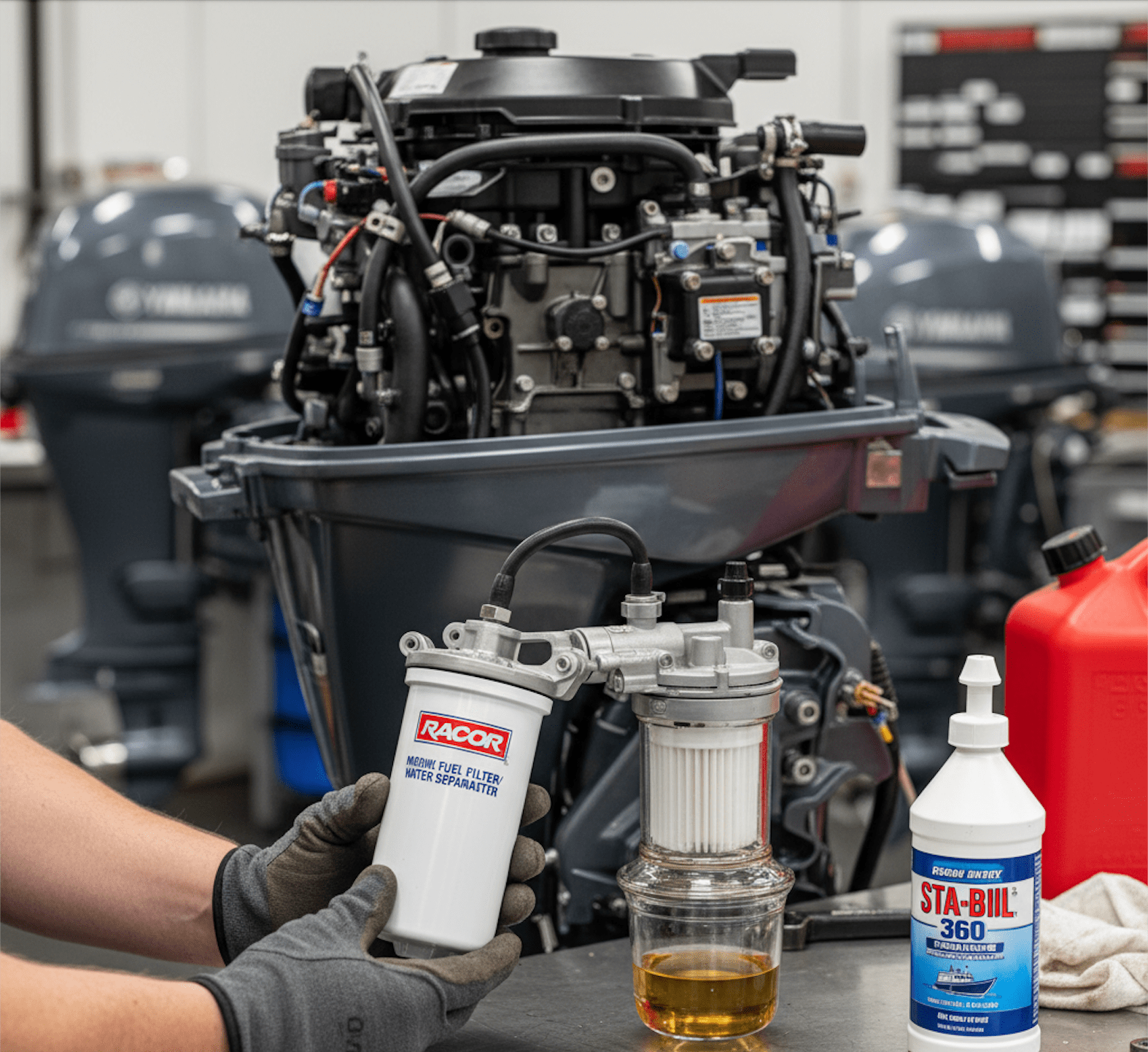The heart of your outboard motor is its fuel system. Like any critical component, it requires regular care and attention to ensure reliable performance and a long life for your engine. At alloutboards.com, we know that getting stranded on the water is the last thing you want. Here’s our guide to proper fuel system care, covering everything from the pump to the injectors.
1. Choose Your Fuel Wisely
The first step in proper fuel system care happens at the pump. Always consult your outboard's owner's manual for the minimum octane rating required.
- Octane: Using a lower-octane fuel than recommended can lead to engine knocking (detonation), which is harmful to internal engine components. Running a higher-octane fuel than required is generally safe but won't provide any performance benefit and will only cost more. Stick to the manufacturer's recommendation.
- Fresh is Best: Fuel quality degrades over time. Try to purchase fuel from high-volume stations that turn over their stock quickly, ensuring you're getting the freshest gasoline possible.
2. The Ethanol Question: A Double-Edged Sword
Ethanol-blended gasoline (like E10, which contains 10% ethanol) is common, but it poses unique challenges for marine engines:
- Phase Separation: Ethanol is hygroscopic, meaning it readily absorbs moisture from the air. When enough water is absorbed, the water-ethanol mixture can separate from the gasoline and settle at the bottom of the fuel tank—a phenomenon called phase separation. This sludge-like mixture, when drawn into the engine, can cause poor performance or severe damage.
- Deterioration: Ethanol can aggressively break down rubber, plastic, and fiberglass components in older fuel systems, potentially leading to leaks or material failure.
The Solution: If you must use E10, take extra precautions:
- Regular Inspections: Frequently inspect fuel lines, hoses, and tanks for signs of leaks or deterioration.
- Fuel Stabilizers (See below): Use a high-quality marine-specific fuel stabilizer formulated to combat the effects of ethanol.
Best Practice: Many outboard owners opt for Rec 90 (recreational) or non-ethanol fuel whenever available, especially for storage periods.
3. The Power of Fuel Stabilizers
A fuel stabilizer is your best defense against fuel degradation and the negative effects of ethanol. It's not just for winterizing; it's smart practice year-round.
- For Storage: If your boat will sit for more than a few weeks, always add a quality marine fuel stabilizer to your tank, run the engine for 10-15 minutes to ensure the treated fuel reaches all components (including the carburetor or injectors), and then fill the tank completely. A full tank minimizes the air space, reducing moisture condensation.
- For Frequent Use: Even if you use your boat weekly, adding a stabilizer can help keep the fuel system clean and protect against phase separation. Look for products specifically designed for marine use.
4. Don't Neglect Your Fuel Filters
The most vital component in protecting your engine from contaminants is the fuel filter.
- Why They Matter: Fuel filters trap sediment, rust, and water before they can reach the delicate and expensive injectors or carburetor jets. Water is the biggest enemy, often leading to corrosion and component failure.
- Primary Filter (Water-Separator): This is typically a large canister filter mounted in the boat's fuel line, often visible and accessible. It's designed to trap water. You should visually inspect and drain this filter frequently (especially if you suspect water contamination) and replace the element at least once per season or as recommended by the manufacturer.
- Secondary Filter (On the Engine): Your outboard will also have a smaller filter (or filters) directly on the engine. Replace this filter as part of your annual service.
A clogged filter can restrict fuel flow, leading to stumbling, loss of power at high RPM, or even engine shutdown. Don't wait for a problem—replace them proactively!
Summary
Keeping your outboard running smoothly is simple when you focus on prevention. Choose the right fuel, treat it with a quality stabilizer, and religiously maintain your fuel filters. A clean, healthy fuel system means more time enjoying the water and less time dealing with engine trouble.
Ready for the open water? Explore alloutboards.com!
Subscribe to our newsletter and receive a selection of cool articles every weeks.


.png)
.png)
.png)
.png)

